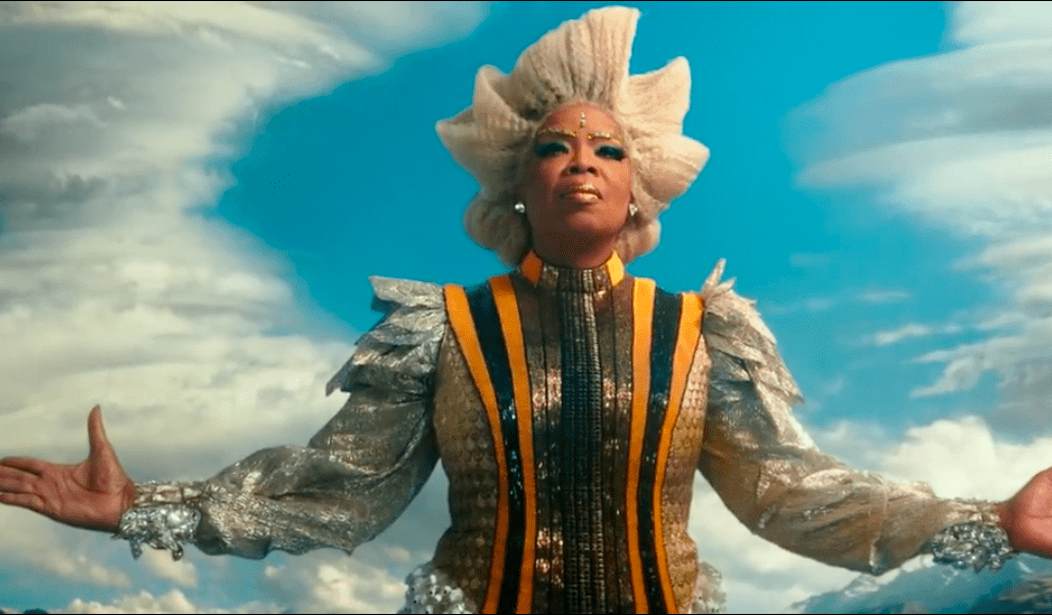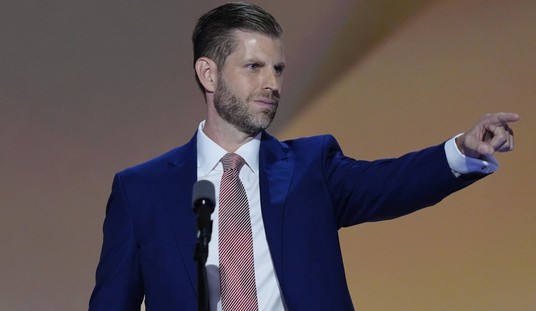As Disney adapted the beloved children’s book “A Wrinkle in Time” (1962) into a major motion picture — with no less than Oprah Winfrey on the star-studded cast list — the studio cut out a great deal along the way. Bible quotes, a reference to Jesus, and even Christian historical figures all got the boot. Could the excising of God help explain why the movie is projected to struggle at the box office?
In the transition from book to movie, many aspects get left on the cutting-room floor. Even so, these omissions proved particularly egregious, partially because they involved rewriting history.
The battle between good and evil (light and darkness) forms a central theme in “A Wrinkle in Time,” and both book and film mention many historical figures who fought the darkness on behalf of the light. Disney seemed zealous to excise any hint of Christianity from the film, going so far as to cut even historic artists mentioned by Madeleine L’Engle, the book’s author.
“All through the universe it’s being fought, all through the cosmos, and my, but it’s a grand and exciting battle,” Mrs Whatsit (played by Reese Witherspoon. And no, the Mrs with no period is not a typo, but L’Engle’s style) says in the book version. When Calvin (Levi Miller), the love interest and friend of the main character Meg (Storm Reid), asks, “Who have our fighters been?” Mrs Whatsit insists he name some himself.
At this point, Mrs Who (Mindy Kaling) quotes from the Gospel of John, “And the light shineth in the darkness; and the darkness comprehended it not” (John 1:5).
Immediately, Meg’s unnaturally brilliant brother Charles Wallace (Deric McCabe) declares, “Jesus! Why of course, Jesus!” Mrs Whatsit immediately confirms this — “Of course!”
The Christian references barely began there, however. Calvin goes on to note Leonardo da Vinci, Michelangelo, French theologian Albert Schweitzer, Ludwig van Beethoven, Rembrandt van Rijn, and St. Francis. Charles Wallace mentions William Shakespeare, Johann Sebastian Bach, Louis Pasteur, and others. For her part, Meg brings up Euclid and Nicolaus Copernicus.
Towards the end of the Disney version, the audience gets a much-truncated list: Albert Einstein, Marie Curie, Jane Austen, Mahatma Gandhi, Nelson Mandela, and Maya Angelou. To be fair, Einstein, Curie, and Gandhi were in the original book’s list.
Notice the excising of history here. Every figure even partially associated with Europe and Christianity — even great artists like da Vinci, Michelangelo, Beethoven, Rembrandt, and Bach — were cut. Jesus, St. Francis, and Copernicus were also erased, despite their huge impact on history and L’Engle’s insistence that they were historically important. The author Jane Austen and the Civil Rights activists Mandela and Angelou may be laudable, but these characters pale in comparison, and the switch (which only adds two when removing twelve) cheapens the richness of “A Wrinkle in Time.”
L’Engle’s referencing and quoting of scripture did not end with John 1:5, however. Early in the story, Mrs. Murry (Gugu Mbatha-Raw), mother to Meg and Charles Wallace, recalls reading to Charles Wallace as he went to bed. What did she read? “Genesis, his choice.”
On the planet Uriel, creatures dance and sing. While Meg can’t make it out at first, she later hears, “Sing unto the Lord a new song, and his praise from the end of the earth, ye that go down to the sea, and all that is therein; the isles, and the inhabitants thereof. Let the wilderness and the cities thereof lift their voice; let the inhabitants of the rock sing, let them shout from the top of the mountains. Let them give glory unto the Lord!”
In this passage, L’Engle has translated Isaiah 42:10-13 into a child-friendly version without historical references to Kedar. What’s more, Meg emotionally resonates with this song.
“Throughout her entire body Meg felt a pulse of joy such as she had never known before. Calvin’s hand reached out; he did not clasp her hand in his; he moved his fingers so that they were barely touching hers, but joy flowed through them, back and forth between them, around them and about them and inside them,” L’Engle wrote.
The Disney film pulses with this sense of joy and wonder everywhere, but it has cut out the center of this joy — removing the Bible references, the worship, and the theological and historical riches of L’Engle’s book.
The story centers around Meg’s search for her missing father (Chris Pine). At one point, her father quotes scripture to her. “We were sent here for something. And we know that all things work together for good to them that love God and to them who are the called according to his purpose,” her father says, quoting Romans 8:28.
Another theme runs throughout L’Engle’s book and the film. Mrs Whatsit gives Meg “the gift of your faults,” and Meg learns to embrace herself and reject the dark power’s temptation to envy. A chapter in L’Engle’s book is called “The Foolish and the Weak,” and that chapter quotes yet another Bible reference.
Mrs Who urges Meg, “Listen, Meg. Listen well. The foolishness of God is wiser than men; and the weakness of God is stronger than men. For ye see your calling, brethren, how that not many wise men after the flesh, not many mighty, not many noble, are called, but God hath chosen the foolish things of the world to confound the wise; and God hath chosen the weak things of the world to confound the things which are mighty. And base things of the world, and things which are despised, hath God chosen, yea, and things which are not, to bring to nought things that are.” (I Corinthians 1:25-28)
This powerful lesson of God giving strength to things that are weak and dismissed by the world pulses through “A Wrinkle in Time.” Throughout the story, Meg is an outcast, mocked by her classmates and seemingly rejected by her father. In the end, she becomes far more important than she could imagine.
Without the Bible grounding of the deep themes in “A Wrinkle in Time,” the fantasy novel becomes a coming-of-age tale about embracing yourself, rather than trusting a power greater than yourself. When Disney excises God from the equation, the spiritual elements give way to a worship of self.
The movie focuses on “the universe,” a word which seems at first to replace the wonder and worship directed to God in the original book. “What if the universe is all inside each of us?” asks Mrs Which (Oprah Winfrey). She later tells Meg, “I am a part of the universe, just like you, Meg.”
When Meg struggles with the quasi-magical way main characters travel through space — called “tessering” — one of the Mrs tells her she won’t tesser well “until you become one with the universe and yourself.”
This New Age language about being “part of the universe,” having the universe “inside each of us,” and becoming “one with the universe and yourself” proves a flimsy replacement for L’Engle’s bold references to God and moving quotes from the Bible.
Without this depth, “A Wrinkle in Time” becomes an empty shell of New Age self-worship. The family themes of searching for a missing father and the growth of brother and sister together still have strong emotional resonance, but the film mostly meanders from place to place, vaguely moving across this “universe” in a tragically aimless fashion.
The actors performed well (especially Deric McCabe as Charles Wallace), the cinematography proved bright and arresting, but the movie fell oddly flat, leaving more questions than answers. “A Wrinkle in Time” is expected to debut at second place at the box office, behind “Black Panther.” On a side note, an actress reported that actors were “testifying about God’s miracles” on the set of “Black Panther.”
As it turns out, the New Age spirituality does not adequately replace L’Engle’s vision, and stories really do have more power when they are inspired by God.
Watch the trailer below.









Join the conversation as a VIP Member